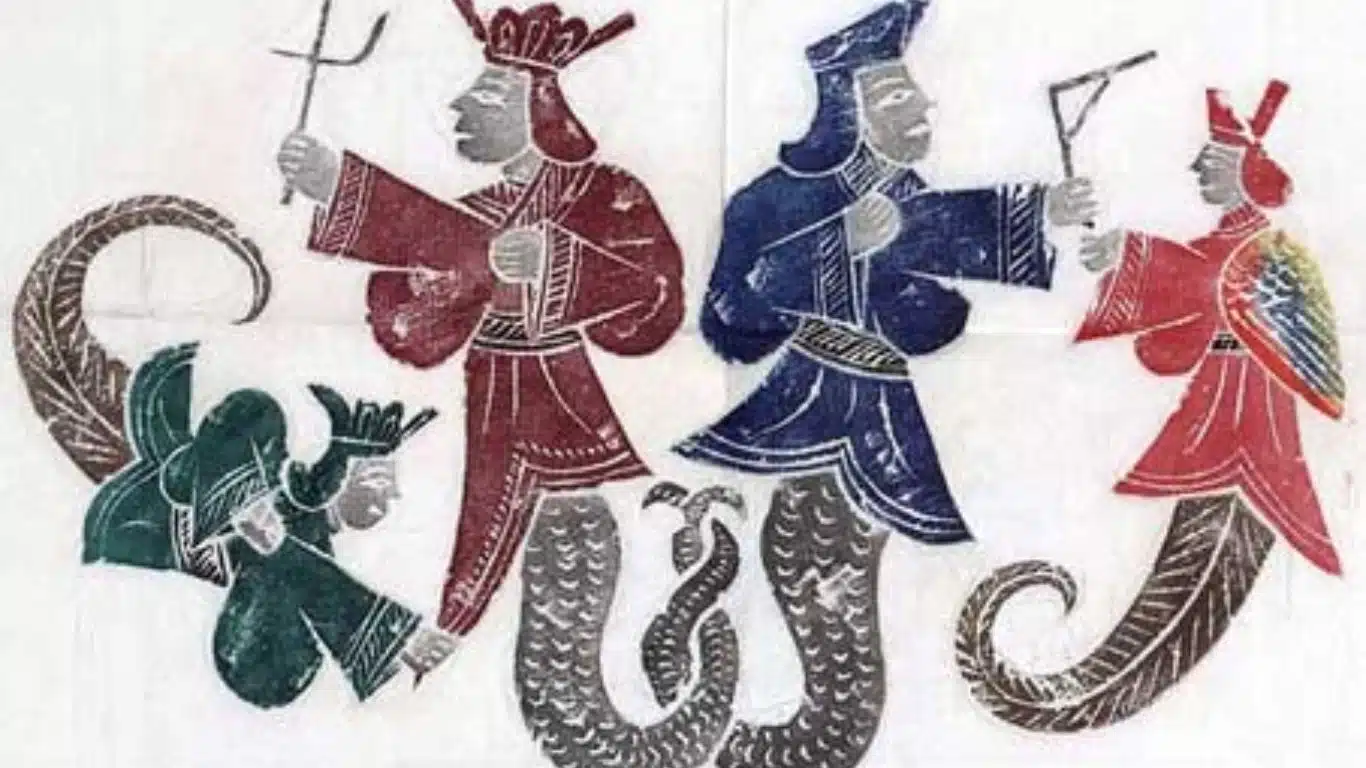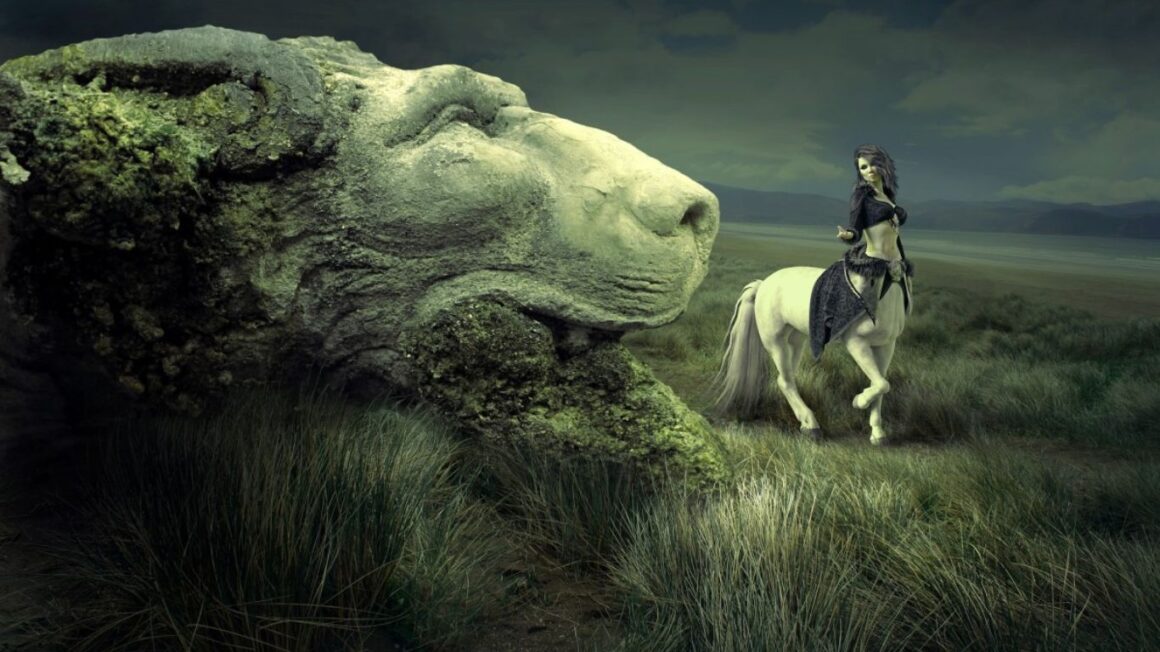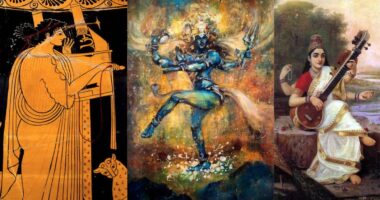- Folklore is often transmitted orally, but it can also be transmitted through other forms such as music, dance, and visua…
- Both mythology and folklore are often used to explain natural phenomena, human behavior, and the relationship between hu…
- Both mythology and folklore often have symbolic meanings and can serve as a way to reinforce cultural values and beliefs…
- While mythology and folklore are closely related, they also have distinct differences.
- Focus on Characters: Mythology often focuses on gods, heroes, and other supernatural beings, while folklore often center…
- Transmission: Mythology is often transmitted through formal religious institutions, such as temples or churches, and is …
Mythology and folklore are two terms that are often used interchangeably, but they actually have distinct differences and connections. Mythology refers to a collection of stories, beliefs, and rituals that explain the origin of the world and the nature of the gods, while folklore includes traditional stories, legends, and customs that have been passed down through generations within a particular culture or community. In this blog post, we will explore the connection and differences between mythology and folklore and why it’s important to understand their unique characteristics. By the end of this post, you’ll have a better understanding of how these two forms of storytelling have shaped our understanding of the world and its cultures.
The Connection and Differences Between Mythology and Folklore
Definition of Mythology
Mythology can be defined as a collection of Stories, beliefs, and rituals that are closely linked to a particular religion or belief system. These stories often explain the origin of the world, the nature of the gods and other supernatural beings, and the relationship between humans and the divine. Mythological stories are often told as a way to provide meaning and purpose to human existence and to help people understand the natural world around them. They can also serve as a way to reinforce cultural values and beliefs. Mythologies can vary widely between cultures, with many featuring unique characters and stories that are specific to a particular region or religion. Examples of mythological stories include the Greek myths of Zeus and his fellow gods, the Hindu stories of Brahma, Vishnu, and Shiva, and the Norse tales of Odin, Thor, and Loki.
Definition of Folklore

Folklore is a term that refers to a collection of traditional Stories, legends, songs, proverbs, customs, and other cultural expressions that are passed down through generations within a particular community or culture. Folklore is often transmitted orally, but it can also be transmitted through other forms such as music, dance, and visual arts. Folklore reflects the beliefs, values, and customs of a particular culture and often serves as a way to teach moral lessons, explain the natural world, and celebrate cultural traditions. Unlike mythology, folklore is not necessarily linked to a particular religion or belief system, although it can be influenced by religion. Examples of folklore include Native American creation stories, African folktales, and European fairy tales like “Cinderella” and “Little Red Riding Hood.”
Connection between Mythology and Folklore
There is a strong connection between mythology and folklore, as both are forms of storytelling that have been passed down through generations and have shaped the cultures and beliefs of societies. Both mythology and folklore are often used to explain natural phenomena, human behavior, and the relationship between humans and the divine.
In many cultures, mythology can be seen as a type of folklore, as the stories are often told as part of cultural traditions and are transmitted orally from one generation to the next. Additionally, many mythological characters and stories have become part of folklore, with variations and adaptations of the original stories being told in different regions and cultures.
Both mythology and folklore often have symbolic meanings and can serve as a way to reinforce cultural values and beliefs. For example, the Greek myth of Prometheus, who stole fire from the gods and gave it to humans, is often interpreted as a symbol of human progress and the struggle for freedom from oppressive forces. Similarly, the African folktale of Anansi the Spider, who is known for his cleverness and trickery, is often used as a way to teach moral lessons about the importance of using one’s intelligence and wit to overcome adversity.
While mythology and folklore have distinct differences, they are both important forms of storytelling that have played a significant role in shaping the cultures and beliefs of societies around the world.
Differences between Mythology and Folklore

While mythology and folklore are closely related, they also have distinct differences. Here are some of the key differences between the two forms of storytelling:
- Religious Association: Mythology is often associated with a particular religion or belief system, while folklore is generally more secular. Mythological stories typically involve gods or other supernatural beings, and are told as a way to explain the nature of the divine and the relationship between humans and the gods. In contrast, folklore is often rooted in everyday experiences and focuses on the beliefs, customs, and practices of a particular culture.
- Focus on Characters: Mythology often focuses on gods, heroes, and other supernatural beings, while folklore often centers around ordinary people and their lives. Mythological stories are often grand in scale and involve epic battles, heroic feats, and supernatural powers, while folklore stories are often more grounded and focus on everyday experiences, such as love, family, and community.
- Transmission: Mythology is often transmitted through formal religious institutions, such as temples or churches, and is often written down. In contrast, folklore is typically transmitted orally, from one generation to the next, and is more likely to evolve and change over time.
- Historical Basis: Mythology often has a historical basis, and may be based on actual events or historical figures, while folklore is often based on cultural traditions and may have less of a historical basis.
- Purpose: The purpose of mythology is often to explain the nature of the world and the divine, while the purpose of folklore is often to teach moral lessons, reinforce cultural values, and celebrate cultural traditions.
Conclusion
In conclusion, mythology and folklore are two important forms of storytelling that have played a significant role in shaping the cultures and beliefs of societies around the world. While they share many similarities, such as their focus on explaining the world and its mysteries, they also have distinct differences, such as their religious associations, focus on characters, and transmission methods. Understanding the connection and differences between mythology and folklore can help us gain a deeper appreciation for the ways in which these forms of storytelling have shaped our understanding of the world and its cultures. By continuing to explore and share these stories, we can keep these traditions alive for future generations and continue to learn from the wisdom and insights they offer.
Also Read: 10 Most Creative and Artistic Gods in Mythology



